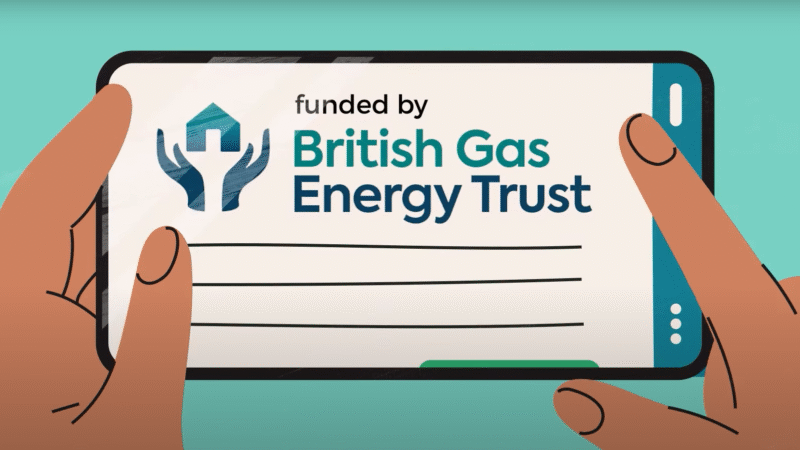COP27: How homes can lower their carbon emissions and individually tackle the climate crisis

COP27, the annual world governments climate change conference, has commenced this week in Egypt where key three topics will be addressed; technical support and funding for developing countries, helping countries to prepare and deal with climate change and reducing emissions. The latter is key in ensuring we maintain the collective goal of keeping global warming to 1.5C (34.7F) by the end of the century.
From residential to commercial buildings, the UK’s built environment is responsible for 25% of the UK’s greenhouse gas emissions with the largest proportion of this being carbon dioxide. This includes consumption habits like heating, cooling and lighting, as well as emissions created during the manufacturing of home appliances. However, though our homes are the worst culprits, home living is also one of the easiest areas to reduce carbon emissions. UK’s leading sustainability and money-saving platform, SaveMoneyCutCarbon, shares the actionable ways that consumers can reduce their carbon emissions at home and commit to more eco-conscious behaviours in the long term.
Reducing heat loss
Roughly 25% of domestic heat is lost through the roof while we lose 35% through the walls, 15% through the floor and 25% from windows and draughts. Your home will benefit from moves to make it as draught-free as possible, with replacement and/or effective sealing of doors and windows, creating a draught lobby if practicable and fitting double glazing or secondary glazing, if regulations allow. Thermal curtains and blinds further add to the energy savings – thermally lining your curtains can reduce heat loss by up to 14%. Around 10% of a property’s heat flows out through gaps in the timbers, which is like leaving a small window open all the time, filling gaps can save up to £40 per room a year.
Keep it cool in the washing machine
Washing your clothes at 30°C uses 57% less electricity than a higher temperature, saving you £7 each year. Contrary to popular belief, a cooler temperature is just as effective at washing your clothes.
Opt for showers over baths
It has been calculated that if a family of four switched from one bath a week to a shower, they’d reduce their annual carbon impact by a whopping 70kg and would save on 40 litres of water. To go that one step further, SaveMoneyCutCarbon recommends switching to an eco-friendly shower head, helping you use 60% less water while reducing your energy bills. It has a flow rate of just 6 litres per minute compared to a traditional shower head which uses up to 20 litres per minute.
Unplug your appliances:
It is estimated that “vampire energy consumers” account for a staggering £95 of your annual bill. Research from SaveMoneyCutCarbon, suggests the average amount of energy consumed by gadgets on standby or in a non-active state is between 9% and 16% of a home’s total energy bill. Therefore, the money-saving experts suggest the easiest way to stop wasting energy and cut your costs is to unplug devices from the wall and plug them back in just as you are about to use them. You may also consider investing in an extension power bar with an on/off switch so you can turn off several appliances at the same time.
Ecoegg Dryer Eggs
An ecoegg Dryer Egg could reduce your tumble drying time up to 28%, saving you heaps of money on your energy bills. They work by gently separating your clothes, allowing more air to circulate so they dry quicker. Plus, it can reduce your plastic usage as it can be used again and again. And there’s no need for fabric softener either as the egg’s nodules naturally soften the fibre of your clothes, saving you 40 plastic bottles a year.
Switch it up with LEDs
Changing your traditional lightbulbs for LEDs could cut your electricity bill by up to 90% a year. According to Which?, a traditional bulb costs roughly £8.42 a year to run whereas an LED only costs £1.71 a year and it could save you more than £180 in energy over its lifetime.
Mark Sait of SaveMoneyCutCarbon discusses how a change in our behaviour and how we interact with our energy is the most effective way to reduce our outgoings:
“The sudden price hikes are a huge concern for us as a country, and with Winter fast approaching, it’s good to start thinking about the ways we can reduce our energy bills, especially in the colder months.
We recently conducted research which found that 40% of Brits are seriously concerned about the rise in energy bills, but haven’t changed their behaviour as a result because they don’t know how. This is not to say we have run out of hope. We simply need to alter how we use energy, and what we are using within our homes and businesses.”






